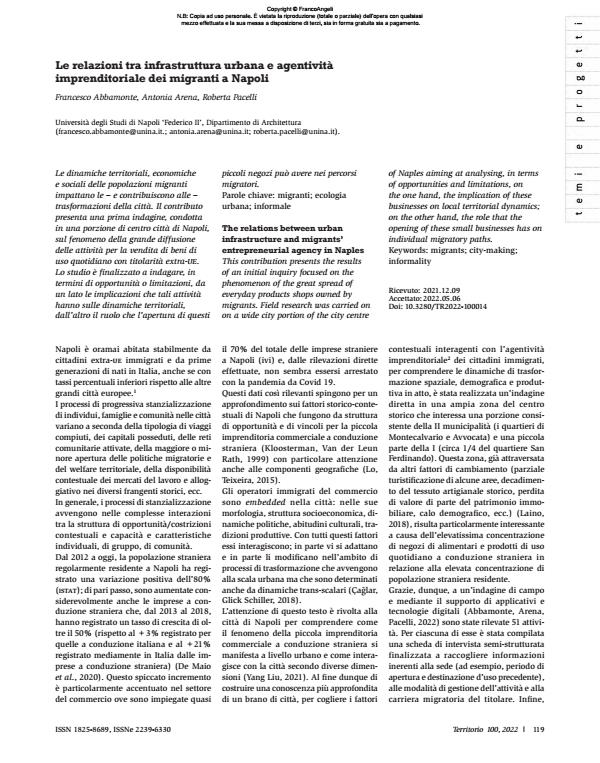The relations between urban infrastructure and migrants’ entrepreneurial agency in Naples
Journal title TERRITORIO
Author/s Francesco Abbamonte, Antonia Arena, Roberta Pacelli
Publishing Year 2022 Issue 2022/100
Language Italian Pages 7 P. 119-125 File size 236 KB
DOI 10.3280/TR2022-100014
DOI is like a bar code for intellectual property: to have more infomation
click here
Below, you can see the article first page
If you want to buy this article in PDF format, you can do it, following the instructions to buy download credits

FrancoAngeli is member of Publishers International Linking Association, Inc (PILA), a not-for-profit association which run the CrossRef service enabling links to and from online scholarly content.
This contribution presents the results of an initial inquiry focused on the phenomenon of the great spread of everyday products shops owned by migrants. Field research was carried on on a wide city portion of the city centre of Naples aiming at analysing, in terms of opportunities and limitations, on the one hand, the implication of these businesses on local territorial dynamics; on the other hand, the role that the opening of these small businesses has on individual migratory paths.
Keywords: migrants; city-making; informality
Francesco Abbamonte, Antonia Arena, Roberta Pacelli, Le relazioni tra infrastruttura urbana e agentività imprenditoriale dei migranti a Napoli in "TERRITORIO" 100/2022, pp 119-125, DOI: 10.3280/TR2022-100014